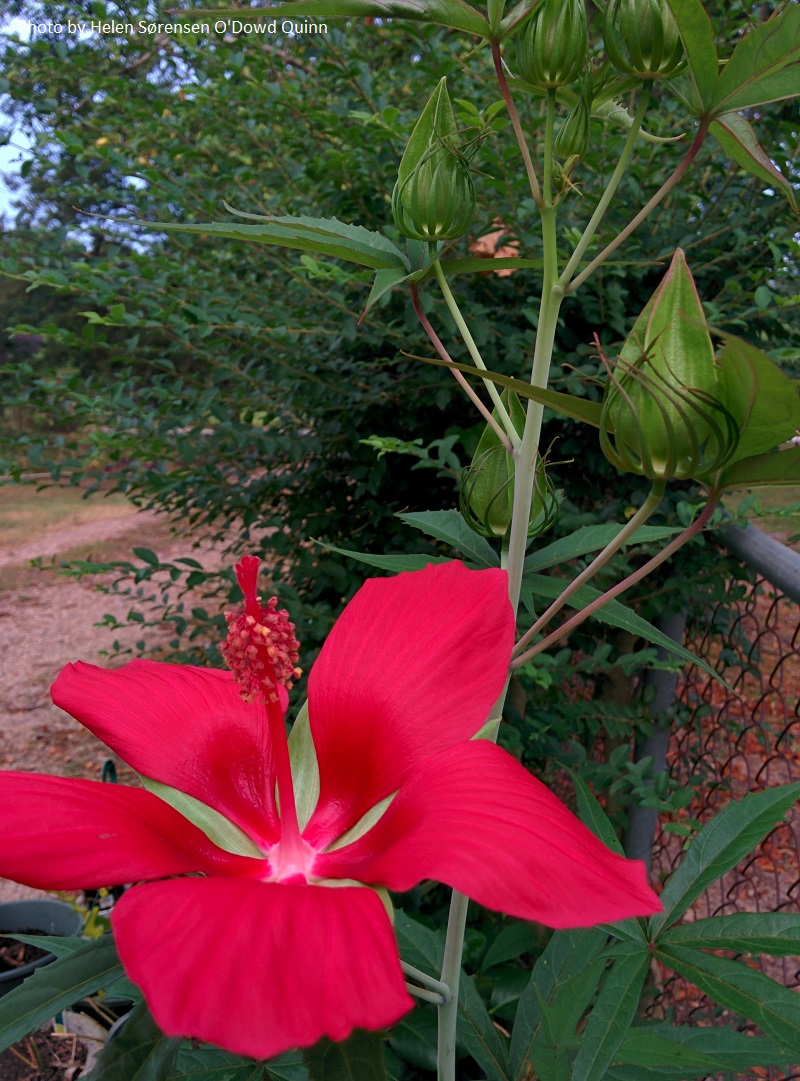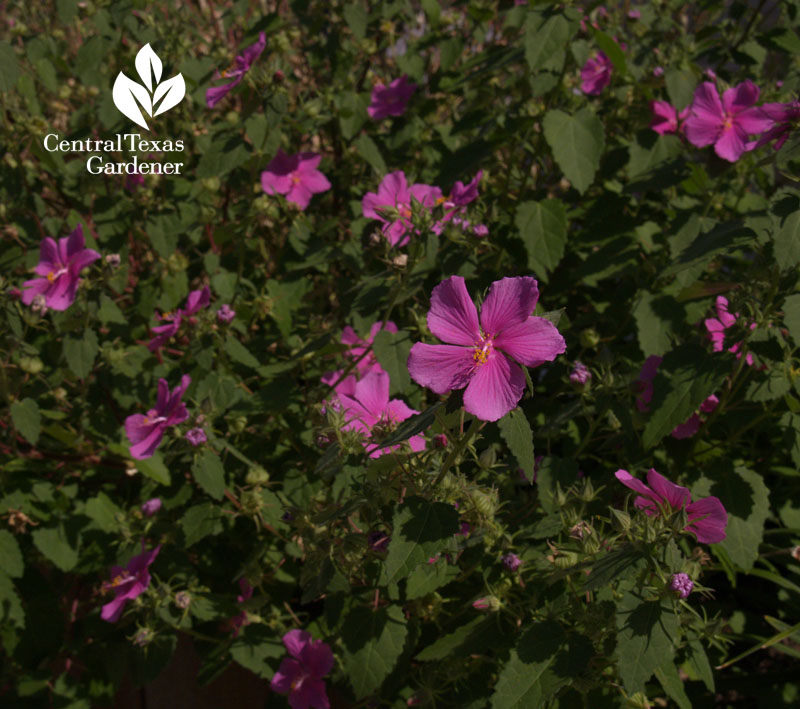October 29, 2015
Drought Doesn’t Mean Dull
Mary Irish is one of my heroes. Not only does she know her plants, she writes and speaks about them with passionate poetry. And she’s funny! That’s a big plus in my book; never does she intimidate even the newest gardener.

Her book, Agaves, Yuccas, and Related Plants, got me started on the water-thrifty succulent trail—a continual reference for me.

I latch onto every word in Perennials for the Southwest, jam-packed with drought-tough gorgeous plants, beautifully photographed by husband Gary. Plus, Mary amicably explains why things don’t work out and what to do about it: an “Oh wow, THAT’S what happened” on every page.

Texas Getting Started Guide is beautifully written and styled, but condensed for quick reference without sacrificing need-to-know details.

Long ago on CTG, Mary introduced us to Mexican olive or Texas wild olive, Cordia boissieri. I covet each one I see. My neighbor’s has made it through the toughest winters with nary a scratch.

Since fall is prime time to plant trees, Mary joins Tom to pick a few from big to small, and west to east.

You can find all the rest here in Trees and Shrubs for the Southwest.

Watch now!
You’ll also love her biography of landing clueless in Arizona and how she and Gary fell in love with a whole new water-wise scheme. For anyone who’s started a new garden, wherever you live, you’ll be right there with them!

As much as we love our trees, we don’t like those pesky seedlings and saplings that overtake our plans and mangle our fences. Trisha’s got the easy- pull trick for smaller ones with Lawn Jaws. ASAP, I ordered some online and can attest to their success. Of course, it’s always easier pulling if the ground is slightly moist.

Puller Bear is for the bigger jobs. You can order in many different sizes and even have your name embossed on them, since the neighbors will want to “share!”

Recently, we asked viewers to send us their summer favorite plants. They were so many that we’ve split it up. Here’s Part 1 of Summer Faves. I love these tried-and-trues from Texas gardeners.
Helen Sørensen O’Dowd Quinn, from Navasota, loves perennial, native Texas star hibiscus. It’s a fave with Marianne Yelvington Hutto, too, though she lucked into a white one!

Heidi Schaub likes Salvia greggii, one of our evergreen favorites to attract pollinators in spring and fall flowers.

Jeff Ferris picked Texas sage, also commonly known as cenizo. These days, you can find many varieties for height and flower and leaf color.

Another show stopper is Lisa LaPaso’s choice of Fireman’s Cap coral bean.

Duranta is tops with Laura Sammons.

Native esperanza (Tecoma stans) rates high with Sharon Nixon Nettle. Duranta and esperanza make a lovely combination!

And Jenny Stocker’s pick is native rock rose (Pavonia lasiopetela), which would make a lovely smaller shrub near those two.

Vines also made the list, including passion vine from Kirti Kode, Jana Kaura and Vicki Blachman.

Vicki also voted for cestrum that ornaments her fence trellis in semi-shade.

Annual warm-weather moonflower is Karen Curry’s pick, good even in a container, placed near an entryway, of course, to sniff and view at night. It’s pollinated by night moths.

Kathy Kloba values her Butterfly Blue clerodendrum, here in a garden we taped for broadcast November 7.

Martha Merriell Chang loves her passalong purple-leaved canna. Passalongs are truly garden treasures!
Kirk Walden likes groundcover ice plant. Don’t know which one he has, but Aptenia is a drought-tough groundcover that often sings through hard freezes. Even when damaged, it returns in my garden.

In the vegetable garden, Randy Jewart and Joe Summy go for okra, David Brooks for Sungold tomato, and Katie Pudhorodsky for black eyed peas.
In part shade, firecracker fern is tops for Stephanie Collins and Martha Cray. It’s a surprise that this one is thriving in full sun.

Donna and Mike Fowler favor that one, too, along with Pride of Barbados, rock rose and red yucca. Here’s the red yucca (Hesperaloe parviflora) supervising orange-flowering aloes underneath.

Another great suggestion for part shade/to sun is Turk’s cap, from April Thomas Rose and Sharon Black-Greene.

Viewer picture also goes to Helen Sørensen O’Dowd Quinn for her fall-blooming bulb, Lycoris aurea. Most of us are familiar with the red Lycoris radiata, which Helen grows as well. L. aurea is the most reliable of the zinger yellows for us.

On tour, Sara Breuer had lots on her hands in her new garden: sticky lifeless soil and an outdated design with lots of lawn. In front, she displaced grass with raised vegetable beds and limestone planters mingling flowers, food, and herbs.

At the front door, she carved a contemporary patio with pea gravel, pavers, and uncluttered, easy-maintenance diversity.


In back, they tore down a clumsy deck and regraded the flooding yard. With a new outdoor dining and living room deck, she, husband Tim Mateer and son Henry hang out with their friends to watch wildlife in the greenbelt beyond (and Henry’s chickens).

Sara didn’t want to build a roof over the patio, since its posts would obstruct their view. Instead, she chose shade sails to complement her vivid patio furnishings.

To soften with a little lawn, she stylized a living “carpet” on a raised limestone patio.

Sara and Tim love to entertain, so she tucks in conversation niches at every level.

See her whole story now!
Thanks for stopping by! See you next week, Linda

